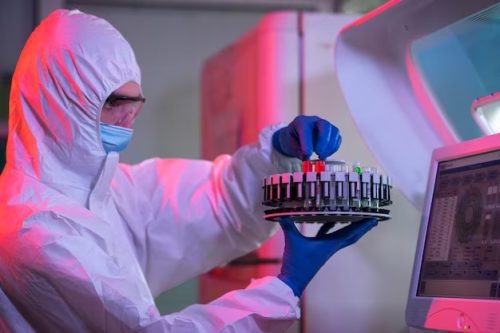
Industrial Filtration Applications using Nanotechnology and its Emerging Trends
Revolutionizing Industrial Filtration with Nanotechnology
The program offers a comprehensive exploration of the transformative impact of new generation inorganic membranes on handling industrial filtration complexities utilizing the advances in nanotechnology. Led by industry experts and researchers, this program dives into the fundamentals of filtration technology, materials & methods for fabricating the membranes, and the emerging trends of exploiting micro, ultra & nanofiltration techniques, with the principles to realize wastewater reclamation or zero-liquid discharge (ZLD) besides generating value addition substances of process wastewater effluents. Participants will gain insights from real-world case studies, interactive discussions, and demonstrations, discovering emerging trends and innovations in the field. This unique opportunity provides engineers, researchers, and industry professionals with valuable knowledge to stay at the forefront of the industry, fostering collaborations and paving the way for a cleaner, more efficient, and sustainable future in industrial filtration applications.
Aim: This program aims to explore the exciting world of filtration technologies and its transformative impact on industrial filtration processes. We invite engineers, researchers, industry professionals, and enthusiasts to join us for a comprehensive journey into the realm of high-end filtration applications and its latest trends.
Program Objectives:
- Understand the fundamentals of nanotechnology in filtration.
- Learn about the design and manufacturing of nano-enhanced filtration systems.
- Assess the environmental impact and sustainability of filtration technologies.
- Explore current trends and future advancements in industrial filtration.
- Develop practical skills in implementing nanotechnology-based solutions in industrial settings.
What you will learn?
Module 01: Foundations of Filtration and the Rise of Inorganic Membranes
Session 1: Introduction to Membranes
- Definition of a Membrane
- Classes & Categories of Membranes
- Geometries of Membranes
- Properties of Membranes
- Fouling of Membranes
Module 2: Understanding Filtration Principles
- Why Filtration?
- Principle of Filtration
- Concepts of Micro-filtration (MF), Ultra-filtration (UF), Nano-filtration (NF), Reverse Osmosis (RO), Forward Osmosis (FO), Membrane Distillation (MD)
- Filtration Examples
Session 3: Evolution and Advantages of Inorganic Membranes
- History of Filtration
- Why Inorganic Membranes? – Advantages & Disadvantages
- Inorganic Membranes Vs. Other Classes of Membranes
- Unique Properties of Inorganic Membranes
Session 4: Filtration Applications and Industrial Uses
- Filtration Applications & Industrial Uses of Membranes – Case Studies
- Summary & Conclusion
- Session for Discussions
Module 02: Crafting the Future: Innovations in Inorganic Membrane Fabrication
Session 1: Recap and Classifications of Inorganic Membranes
- Overview of the Previous Lecture
- Detailed Classifications of Inorganic Membranes
Session 2: Fabrication Techniques – Part 1
- Configurations & Geometries of Inorganic Membranes
- Scientific Principles and Technical Guidelines for Membrane Fabrication
- Fabrication of Inorganic Membranes: Disc Geometry Formulation (Model)
Session 3: Fabrication Techniques – Part 2
- Fabrication of Inorganic Membranes: Hollow Tubular Configurations (Hollow)
- Fabrication of Inorganic Membranes: Multi-channelled Configurations
- Technical Parameters of Fabrications & Control
Session 4: Challenges and Characterization
- Troubleshooting of Fabrications & Scale-up Issues
- Technical Challenges on Fabrications
- Characterization & Property Assessment of Inorganic Membranes
- Micro-structure Assessments of Inorganic Membranes
Session 5: Enhancing Membrane Performance
- Assessment of Thermal & Mechanical Properties of Inorganic Membranes
- Fouling of Membranes and Validation of Inorganic Membranes
Session 6: Application Design and Innovation
- Application Design of Inorganic Membranes
- Innovative Applications
- Summary & Conclusion
- Session for Discussions
Module 03: Beyond Horizons: Charting the Future of Inorganic Membrane Technology
Session 1: Recap and Future Research
- Overview of the Previous Lectures
- Thoughts on Future Research in Inorganic Membranes
Session 2: Hybrid Membrane Concepts and Fabrication
- Concepts of Hybrid Membranes
- Fabrication of Hybrid Membranes
Session 3: Technical Challenges and Advancements
- Challenges on Fabrication of NF & RO Membranes
- Materials & Methods for Fabrication Research
- Research on Coating Technologies
Session 4: Emerging Trends and Discussions
- Trends on New Applications
- Summary & Conclusion
- Session for Discussions
Intended For :
- Undergraduate degree in Environmental Science, Chemical Engineering, or related fields.
- Professionals in the energy sector or agricultural industries.
- Individuals with a keen interest in renewable energy and sustainable practices.
Career Supporting Skills
